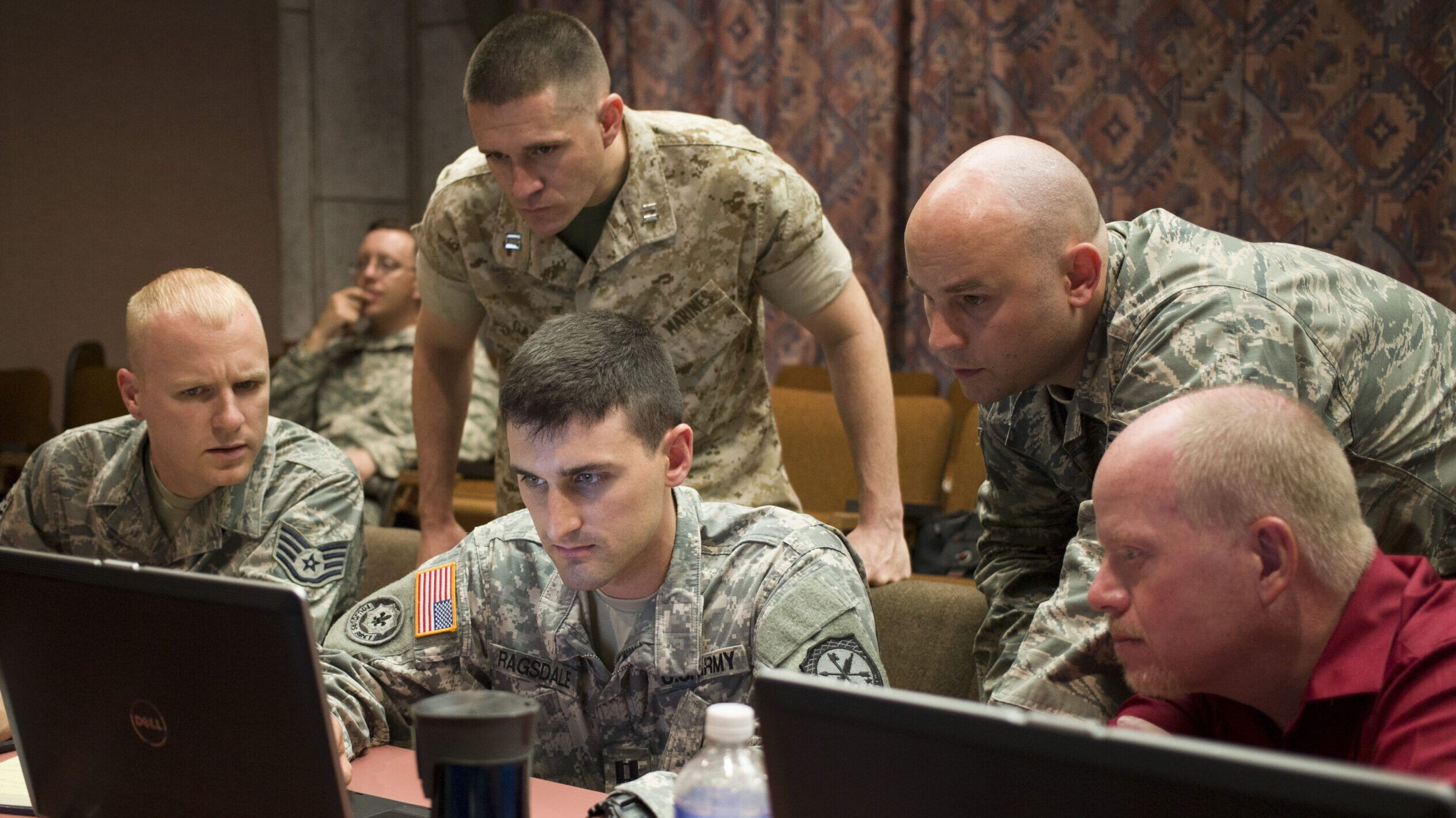JASPREET GILL

TECHNET AUGUSTA 2022 — The Army Cyber Center of Excellence is already incorporating lessons learned from the Russian invasion of Ukraine into its schoolhouse curriculum, specifically when it comes to the electromagnetic spectrum, the center’s commander said today.
Gen. Paul Stanton told reporters during a media roundtable at the AFCEA TechNet Augusta conference that the service is learning a lot about electronic warfare, emissions control and what soldiers’ footprints look like in the electromagnetic spectrum from watching the ongoing conflict in Ukraine.
“We’re watching both the Russian and Ukrainian ability to find each other on the battlefield using EMS, using electronic warfare,” Stanton said. “And we’re studying that pretty carefully to make sure that one, we know how to find our enemies and two, we know how not to be found when we don’t want to be.”
Stanton’s comments follow those made recently by other Army officials. In May, Maj. Gen. Rob Collins, who was then the Army’s program executive officer for command, control, communications-tactical, said the invasion brought the service “back to the basic blocking and tackling of transmission security [and] communications security.”
Collins told reporters at the time that the invasion also underscored the importance of communications, logistics and “baked-in” cybersecurity, reinforcing concepts the service is pushing forward with its network capability set development.
“And also when you have a living and breathing threat, you need to think about the things such as a contested and congested environment,” he said. “And that’s just not something in the small scale…It is reinforcing some of the concepts that we’re pushing forward within the capability set strategy.”
At AFCEA TechNet, Stanton also told reporters that the Army Cyber Center of Excellence has made significant progress over the past year in training its “offensively oriented” cyber mission force soldiers.
The school is currently working on a pilot course with US Cyber Command and the military services that will allow soldiers and joint service members to become fully trained to report to their respective units “ready to execute their missions.” Last year, Stanton said he noticed graduates who would be reporting to cyber mission force teams weren’t ready to conduct their missions right as soon as they left the school and he wanted to change that, C4ISRNET reported.
The pilot courses are “being taught in Texas, in Georgia and in Washington, DC and at Ft. Meade, [Md] where we are pushing for our offensively oriented soldiers, service members to be fully trained,” Stanton said. “It requires a little bit of change in curriculum, a change in approach, a change in our assessment strategy. But we are absolutely making progress and informing the longer term way ahead.”
The Army is about six months to a year away from being fully operational with the pilot course, Stanton said.
No comments:
Post a Comment